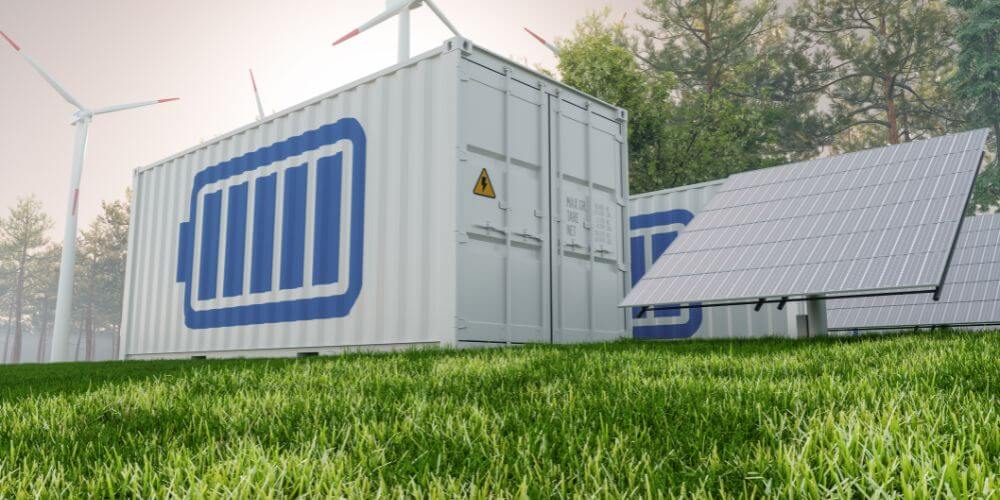Solar batteries can make the world of difference to your solar energy setup, both in terms of efficiency and versatility. No matter whether you’re new to the solar power game and looking for the best fit for your household or business, or have been using solar energy for years, selecting the right solar battery can make or break your system.
Solar batteries – also known as solar energy storage systems or solar power batteries – store the electricity generated by solar panels to be used at a later date. They maximise the benefits of solar energy for homeowners and businesses, by capturing and storing electricity that’s produced in excess over periods of intense sunlight, and releasing it when solar generation is low or non-existent – like at night, or on overcast days.
Solar energy would be mostly inefficient without solar batteries – after all, without a device to receive and store energy produced by your solar panels, households would only receive energy when the sun is shining, and all panels are in full working order. Solar batteries store this energy for when you need it most, and can also be used to feed excess energy back to the grid. They can make your household less susceptible to power outages, and even allow homeowners to go off-grid entirely.
While lead-acid batteries are low in energy density – i.e. they cannot hold much energy per kilogram of weight – they are both cost-effective and reliable, making them a common choice for home use. Lithium-ion batteries are more expensive, but have a higher energy density and make for a smaller, lighter and more efficient option, allowing users to access more energy before they need to be recharged. This makes them ideal for charging laptops and phones, as well as for general household use. Meanwhile, nickel-cadmium and flow batteries require relatively low levels of maintenance compared to other types of solar battery, but are rarely used in residential settings.
Overall, solar batteries are important because they enhance the efficiency, reliability, and sustainability of solar energy systems, making them a crucial component in transitioning to a cleaner and more resilient energy future.
Solar batteries are a significant upfront financial investment – a single lead-acid battery can cost between $200 and $800 USD, or even more depending on the size/power of the battery, while the average cost of a residential lithium-ion solar battery system with installation ranges between $7,000 and $14,000 USD – but ultimately they can help users save on energy costs, especially at night or in extreme circumstances. For off-grid dwellers, they are critical components of any reliable solar energy system.
Solar batteries help to provide households and companies with clean, green, renewable energy. Depending on where you live, you may be entitled to local government incentives or rebates to subsidize the costs of adding solar batteries to your energy system. For example, US residents may receive up to 30% off on their battery installation by qualifying for a federal solar tax credit.
Now you know the key details surrounding solar batteries and their role in the solar energy system, it’s up to you to decide whether the investment is worth the cost and upkeep requirements.


